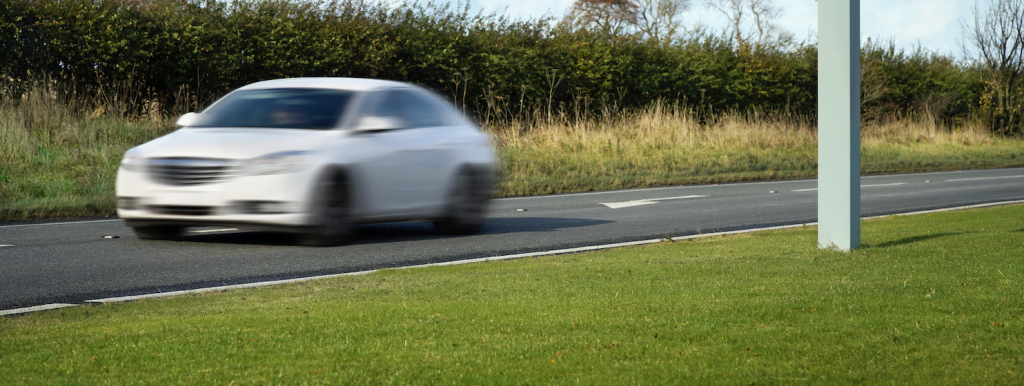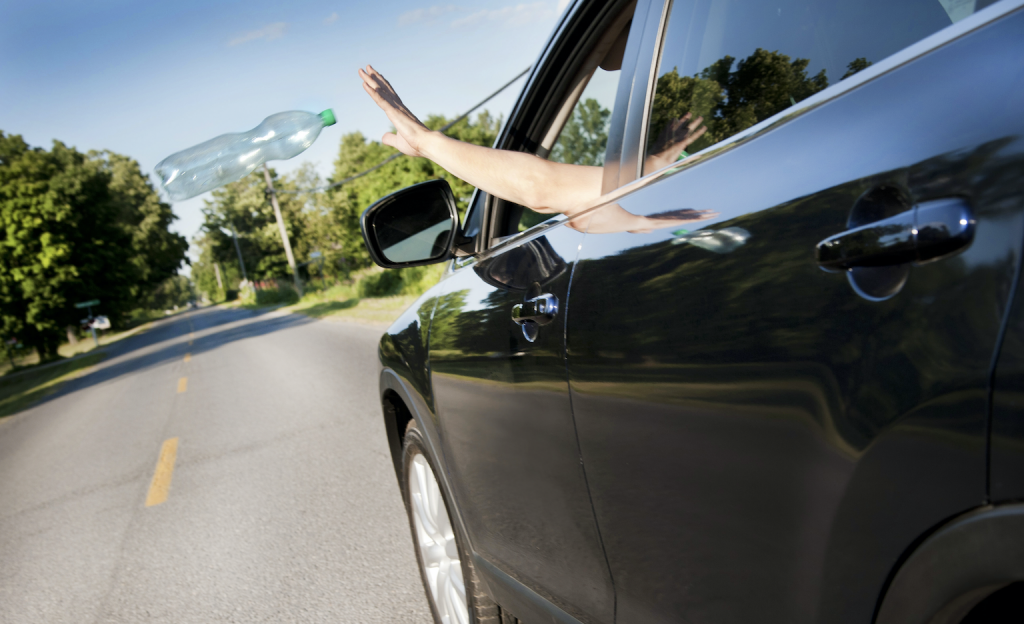Regardless of whether you just got your license six months ago, or 60 years ago, and regardless of how many tickets or violations you’ve picked up along the way, most Australians consider themselves good drivers.
But even the best of drivers are woefully ignorant of the laws of the road, Here are some examples:
-
Eating, Drinking, Patting Your Dog While Driving and Putting on Make-up
We’ve all seen it. You’re driving down the road, and you see some young woman controlling the car with one hand on the wheel, and the other with her mascara brush doing her eyes in the rearview mirror. Think she’s driving safely? Not a chance.
Or what about the pet lover who is getting lots of dog kisses while her poodle is in her lap. Think they’re a bad driver? Your right, but what about you?
Studies from insurance companies show that 80 per cent,( that’s eight out of 10 drivers drink coffee, tea or coca-cola while driving) and 70 per cent eat fast food, breakfast food, or snack on-chip and pretzels.
What’s the Law?
Australian law is clear across all territories, you need to keep your hands in the 9 and 3 positions at all times while you are driving, and if you fail to do so, you are breaking the law.
And no holding on the wheel with two fingers either, or dangling that chip bag open by wrapping your fingers in reverse around the steering wheel.
Why Should I Do This?
The only way to safely have a grip on your car’s steering wheel is to have both hands clearly on the steering wheel. The 9 and 3 position gives you the greatest control.
What Can It Cost You?
Fines of up to $425 dollars and more, plus 4 demerit points.
-
Tailgating
You are expected to maintain a safe distance between you and another car of around 3 seconds. That means you need an additional one second to recognise the need to put on your breaks, and another 180 feet to come to a complete stop.
How Many Australians Tailgate?
A lot! According to New South Wales Police Statistics between 2014 and 2018, one out of every four car collisions were rear-ending ‘ers on which the tailing car wasn’t able to stop on time.
People think speed limits are a joke and their favourite thing to do is to creep up on the car ahead of them, forcing them to turn into another lane, or honking their horn and flashing their lights at them to boot.What Are the Legalities Around This?
The law states that regardless of the speed limit, the car behind is responsible for being able to stop in time to avoid collisions. Even if the car ahead of you is going 90km per hour, you need to pass and go around them, not crawl your bumper up their tail.
Why Should I Do This?
First of all, since the law holds you, the tailing vehicle responsible for being able to stop to avoid a collision, if one occurs, you are at fault. Expect not only to get a ticket but to see your car insurance skyrocket.
Second of all, naturally, you want to avoid damage4 in your own car.What Can It Cost You?
A fine of up to $425 dollars, 3 demerit points, and higher insurance rates. And if you are at fault, your insurance company may refuse to cover your costs.
-
Using Your Mobile Phone
If you have BlueTooth and voice commands on your phone, you can use your mobile phone.
However, if you have to take your hands off the wheel to turn it on, turn it off, or touch it anyway, you are in violation of the law. You can’t even pick up your mobile phone to check messages at a stoplight.
And in fact, even if your car is stopped at a]gas station or parking lot, if you are in the driver’s seat and the keys are in the ignition, you are in violation of the law.
Yet people play the mobile phone game every day hoping the police don’t see them, and wanting not to miss those oh so important messages.
What’s the Law Say?
The law is very strict. You simply can’t touch your phone for any reason while driving. Don’t even turn it on merely to get highway directions.
Implications
Plenty of people have died because of using their cellphone either for phone calls or to text. The odds are so much greater of an accident happening when you are using your cellphone, that many people even wonder if Bluetooth and voice commands are safe.
Potential Costs
Fines of $319 to $425 are common and up to 4 demerit points. Some jurisdictions even tack on double merit points.
-
Speeding
It seems on the highway as if 90 per cent of Australia’s drivers like to speed, and admittedly, sometimes police and highway enforcement agents let a little slide, but when they want to pinch you, open your pocketbook wide, and possibly kiss your holiday vacation plans goodbye.
What Are the Rules?
In general, the default speed limit is 50 kilometres per hour unless posted otherwise.
- This is reduced to 40 in most places where there is a school zone during posted hours.
- The maximum speed limit is 100 kilometres per hour for roads posted as such.
- You can actually get a speeding ticket for going 1 kilometre per hour over the posted limit, but typically tickets are levied for going 5 kilometres per hour or more over the speed limit.
The Faster Go, the Less Reaction Time You Have
The faster you go, the less time you have to react in an accident. For example, if you are breaking at 50 kilometres per hour, you have much more control over your vehicle than if you are travelling at 80 kilometres per hour.
And if you are also even minorly impaired through the use of alcohol or even prescription drugs, but still well under the legal limit, your reaction time is even more restricted.
Associated Costs
The various territories in Australia have a very low tolerance for speeding. While it is up to each territory to create it’s own fine structure, considering how high the fines are, it’s surprising how many drivers continue to speed.
For example, in New South Wales, if you get caught going 10 kilometres over the speed limit, the penalty is a $265 fine. In a big hurry and you travel 20 kilometres over the speed limit, up that to $455. And ask yourself, is it worth it to travel 30 kilometres over the speed limit for a fine of $872? But perhaps that’s better than the speed demons who travel over 45 kilometres over the speed limit and lost half their demerit points on their license, plus a $2350 fine.
Other territories are similar, with fines of even $100 for going less than 9 kilometres or less beginning at a minimum of $100, and then rising up fast. -
Driving With an Expired Registration Sticker or Driving Uninsured
The fines are instant and heavy. For example, in New South Wales, the fine is $607 for letting your registration lapse, and an additional $530 for being uninsured.
You Legally Need to Have a Licence
The law is unequivocal. Every car must be currently registered, and have at least the minimum auto insurance required by law.
Why is This Important?
All cars need to be currently registered to drive on the roads in Australia, and to be sure the state knows who owns what vehicle, in the event of things such as hit and runs.
And accidents from uninsured drivers cost Australians and their insurance companies millions of dollars.
What Can It Cost You?
Pretty much every territory levies instant fines for both unregistered driving vehicles as well as for driving uninsured. $1,000 or more are common. In addition to the fines, drivers are prohibited from driving until both conditions are corrected, and would-be barristers should note that if you fight it in court, the penalty can quadruple or more.
-
Failure to Use Seatbelts
Everyday, police and highway patrol officers stop and give tickets to drivers because they observe with the driver or the passengers aren’t wearing a seatbelt.
What Does the Law State?
The law states that every person within a vehicle, both drivers and passengers, must be strapped into a seatbelt. There are no exceptions. The law even applies to riders in a taxi cab.
Why is This Important?
A report from the Ombudsmen of New South Wales showed that over half of 66 children aged between 0-12 years old who died in car crashes between 2007 – 2016 were not adequately restrained in the vehicle.
Only a small minority of people in New South Wales fail to wear seat belts, but that small minority produces an alarming percentage of deaths. For more information on the importance of seat belts; we recommend you read this information.
What Can It Cost You Financially?
You’ll typically be fined $550 for not wearing a seatbelt, although if there are multi-passengers not wearing a seatbelt, that can rise to $900. You’ll also get four demerit points on your license.
-
Littering
The plain fact is that so many people litter from the moving cars that they don’t even give a thought to the environmental consequences, but the territories do.
What’s the Law Say?
There is zero tolerance for littering in all states in Australia. Even throwing away a single lollipop that your child accidentally dropped on the floor of your car is technically littering, let alone the proverbial dirty nappies that are left on the side of the road. And don’t even think about throwing away a cigarette or an unfinished cigar.
Why is This Important?
Australian road crews spend thousands upon thousands of dollars per year just to keep the highways unlittered. And lit cigarettes or cigars can quickly turn into brushfires, which costs millions more, and threatens homes, lives, and wildlife.
What Can It Cost You?
In Victoria in 2017, the fine was $317 for littering, which was bumped to $634 if it was a lit cigarette. Don’t be surprised, given the recent fires, if fines have not doubled.



